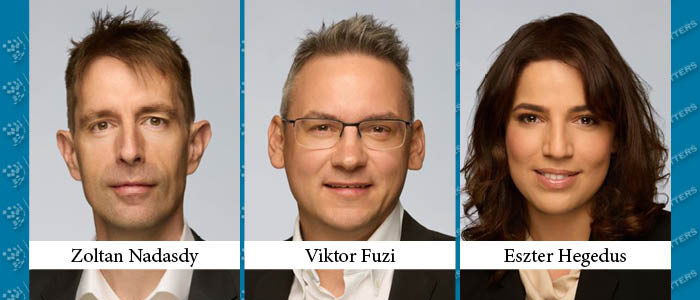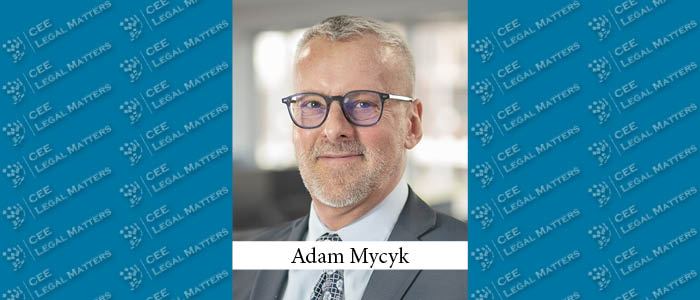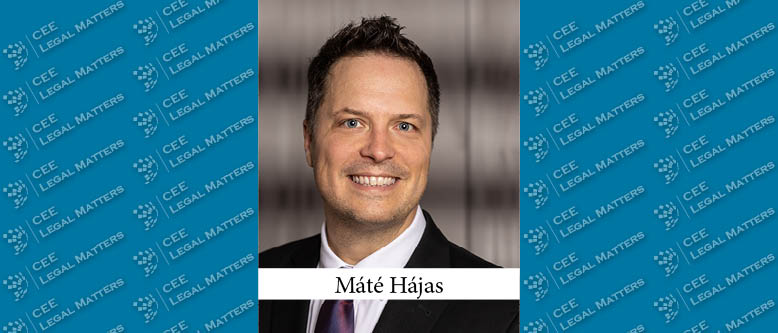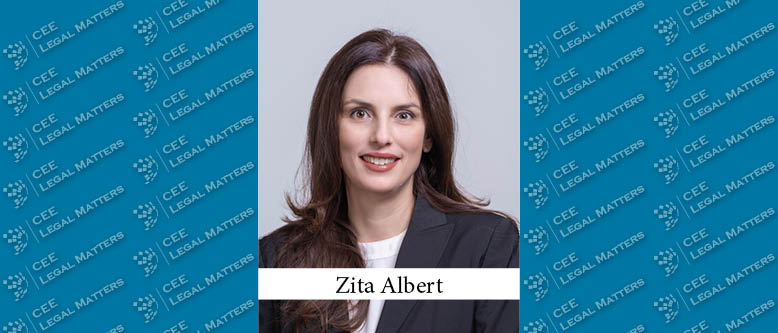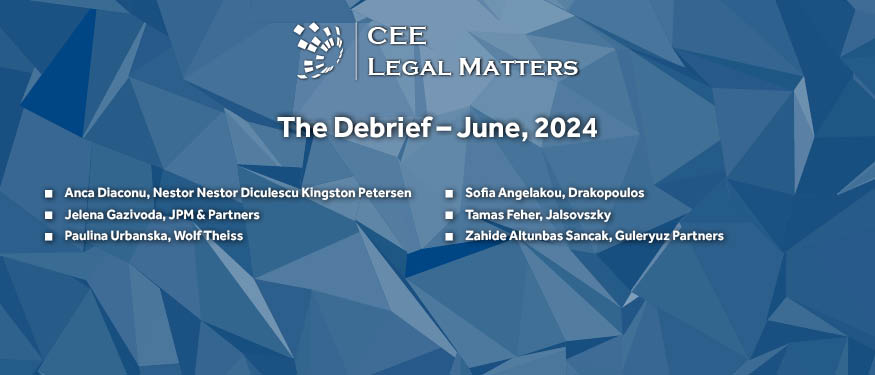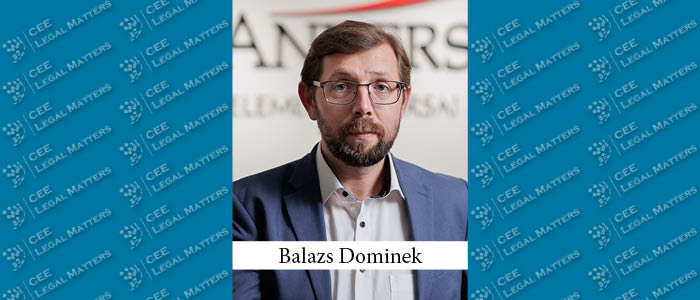The former Noerr Budapest team has joined WTS Legal Hungary, including Zoltan Nadasdy, Viktor Fuzi, and Eszter Hegedus as Partners.
Dora Czegledi Becomes Lead Counsel at Fever
Madrid-based Hungarian lawyer Dora Czegledi has been appointed by Fever to Lead Counsel.
Thanks to the Hungarian Competition Authority’s Decision Viber Has Become More Secure and More Transparent
In February 2020 the Hungarian Competition Authority initiated a competition supervisory procedure against Viber Media (operator of the Viber app, seated in Luxembourg) which was likely to infringe the prohibition of unfair commercial practice against consumers. During the procedure, Viber made commitments aiming at the avoidance of penalties. The procedure ended on 16 May 2024 with a decision where the authority, without finding an infringement or lack of infringement, obliged Viber to fulfil its commitments.
Hungary Looks at AI, ESG, Employment, and East: A Buzz Interview with Daniel Gera of Schoenherr
With ESG and AI becoming increasingly important for all businesses, the two are set to impact law firms in Hungary as well while the country looks to tackle immigration reforms and enhance consumer protections, according to Schoenherr Hungary Managing Partner Daniel Gera. Against this background, a noticeable trend of FDI sources tilting East is registered.
Leading the Way: Advancing Inclusion, Diversity, and Equity in the Legal Profession in Central and Eastern Europe
Inclusion, diversity, and equity (ID&E) are fundamental principles that shape the fabric of modern societies and industries. Within the legal profession, these principles not only reflect our commitment to justice and equality but also drive innovation, foster creativity, and enhance client service. In Central and Eastern Europe (CEE), where the gradual democratization and opening of societies since the 1990s has largely driven greater acceptance of diverse perspectives and communities, it is imperative for lawyers and law firms to take a leading role in advancing ID&E. In this article, we discuss how investing in inclusion, diversity, and equity can help your firm unleash the full potential of your workforce, foster creativity, and drive sustainable success.
Is Hungary at the Forefront of Artificial Intelligence in Europe?
Recently, the Artificial Intelligence Coalition (MIK) informed the relevant committee of the Hungarian Parliament about possible trends in the sector. The MIK’s goal is clear: to put Hungary at the forefront of AI developments and applications in Europe and to become a member of the international AI community. In this process, it will bring together users, market players, academia, professional organisations and public institutions.
Mate Hajas Joins Kapolyi Law Firm as Head of Corporate Team
Former DLA Piper Senior Associate Mate Hajas has joined Kapolyi as Head of the firm's corporate team.
Zita Albert Moves to Erdos Partners
Former Cerha Hempel Budapest Partner has joined Erdos Partners to head the firm's M&A and corporate practice.
Peter Ruff Makes Partner at Pontes Budapest
Peter Ruff was appointed to Partner at Pontes Budapest, where he will lead the corporate, M&A, private equity, and venture capital practices of the firm.
Greenwashing in Poland and in Hungary
Nowadays, climate and environmental issues are increasingly important to many consumers. Being “eco” has become fashionable nowadays. Environmental issues are now recognized as an important market factor that allows a given company to improve its market position.
Linklaters, Freshfields, Bittera, Kohlrusz & Toth, CMS, Wolf Theiss, Kinstellar, and Orrick Advise on AviAlliance' Sale of Budapest Airport to Corvinus and Vinci Airports
Linklaters, Freshfields, Bittera, Kohlrusz & Toth, and Herbert Smith Freehills have advised AviAlliance and co-shareholders on the sale of Budapest Airport to a consortium consisting of Hungarian state-owned Corvinus Zrt and French co-investor Vinci Airports for a total purchase price of EUR 3.1 billion and net debt of EUR 1.2 billion. CMS advised Corvinus. Kinstellar, working with Orrick, advised Vinci Airports. Wolf Theiss, working with Latham & Watkins, advised the lenders on financing the transaction.
The Debrief: June, 2024
In The Debrief, our Practice Leaders across CEE share updates on recent and upcoming legislation, consider the impact of recent court decisions, showcase landmark projects, and keep our readers apprised of the latest developments impacting their respective practice areas.
To read, or Not To Read, That Is Not the Question Anymore. Changes to the Reading Obligation in Notarial Procedures in Hungary
The Hungarian Parliament recently adopted amendments to the notarial procedure, introducing significant changes that affect the reading of documents during notarial acts from 1 January 2025.
The Corner Office: Client Relationship Dealbreakers
In The Corner Office, we ask Managing Partners at law firms across Central and Eastern Europe about their backgrounds, strategies, and responsibilities. While in the legal field maintaining client relationships is vital, there are occasions when law firms must end engagements. To explore some of the reasons that might lead to this, we asked: After accepting mandates, what have been the main reasons for which you ended up having to drop clients?
Hungary’s Automotive Sector: Keeping an Eye on the Road
Heralded as a cornerstone of the national economy, the Hungarian automotive sector faces significant challenges but also promising opportunities. Baker McKenzie Partner Zoltan Hegymegi-Barakonyi, Lakatos, Koves & Partners Partner Adam Mattyus, Szecskay Senior Partner Judit Budai, and Kinstellar Sector Head and Senior Counsel Akos Nagy take a deep dive into the sector’s status amidst a backdrop of labor shortages, geopolitical shifts, and the government’s concerted efforts to continue growth and maintain global competitiveness.
Inside Insight: Sandor Zorad of MET Group
After eight years with the MET Group, Legal Director Sandor Zorad reflects on the company’s path to international expansion.
Know Your Lawyer: Balazs Dominek of Szabo Kelemen & Partners Andersen Attorneys
An in-depth look at Balazs Dominek of Szabo Kelemen & Partners Andersen Attorneys covering his career path, education, and top projects as a lawyer as well as a few insights about him as a manager at work and as a person outside the office.
Hungary: The Network Development Plan for Electricity System 2023 Has Been Approved
On February 14, 2024, the Hungarian Energy and Public Utility Regulatory Authority (MEKH) approved the Network Development Plan 2023 submitted as a result of the coordinated work of the Hungarian TSO (transmission system operator – MAVIR Zrt.) and distribution network operators.

